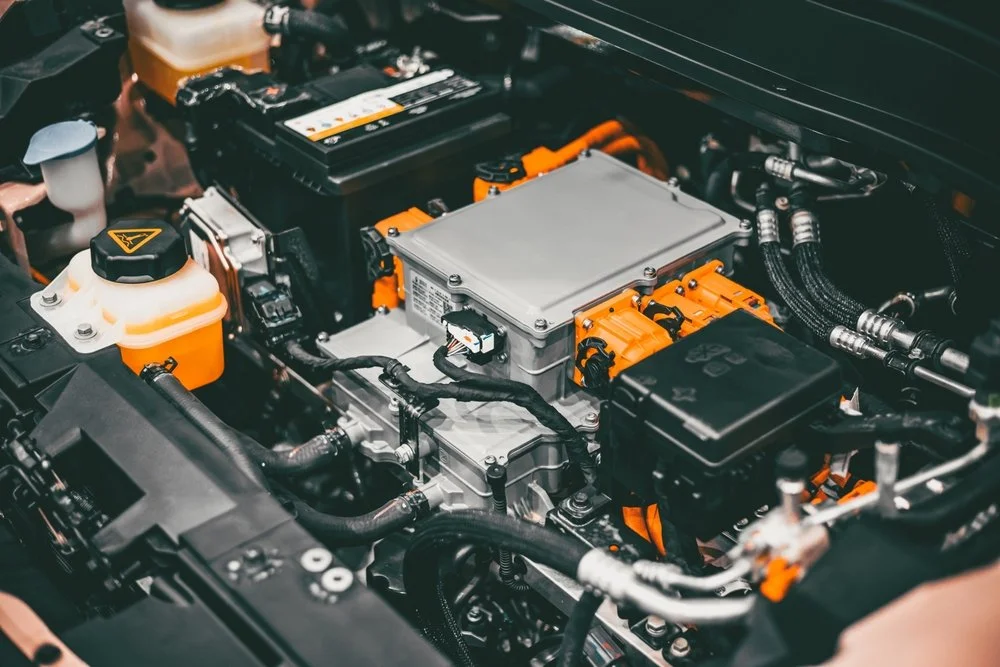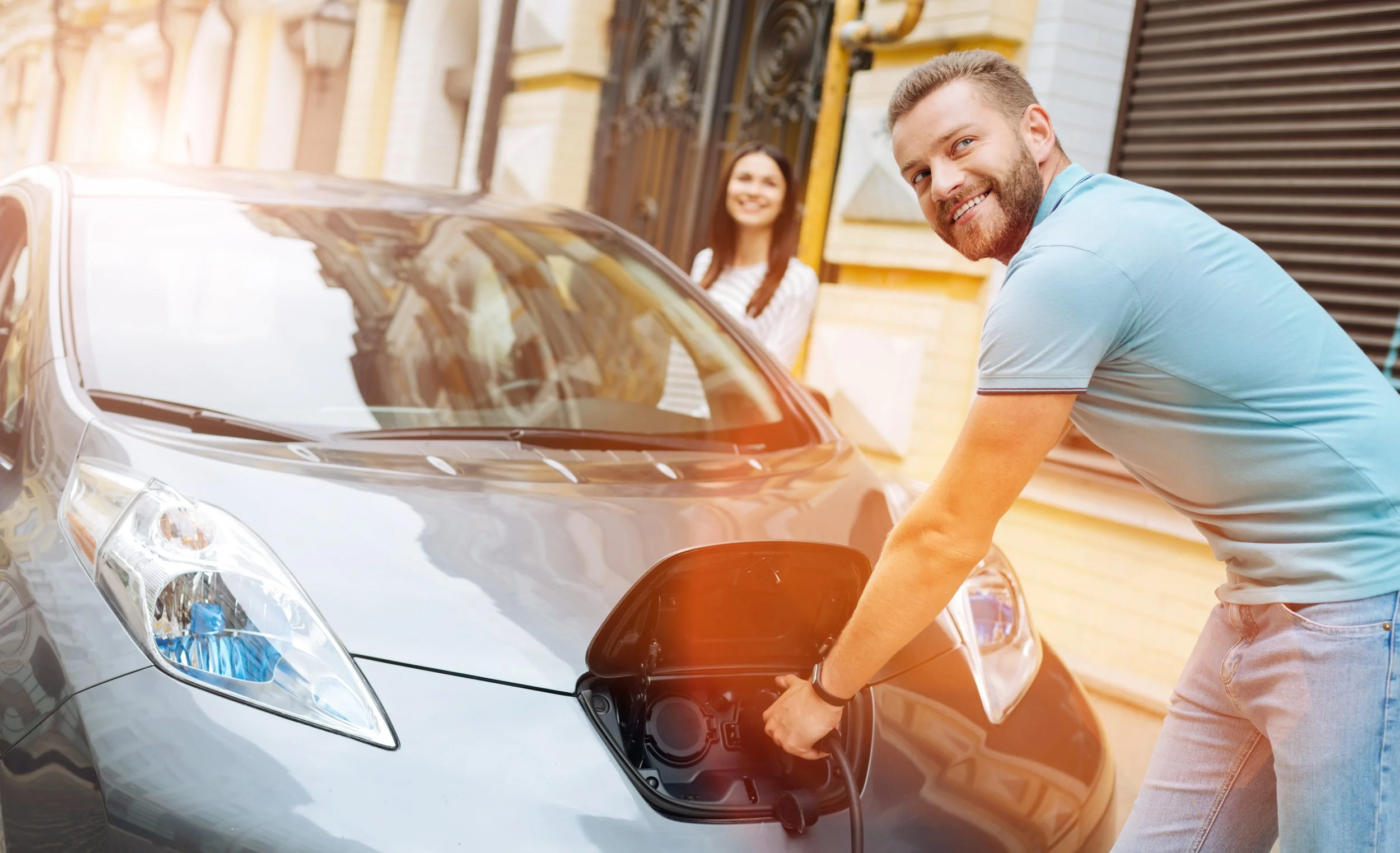How to Check EV Battery Health: A Complete Guide for UK Drivers
Source: Shutterstock
Understanding your electric vehicle's battery health is crucial for maintaining optimal performance and planning future purchases. Whether you're an existing EV owner or considering switching through an electric car salary sacrifice scheme, this guide explains simple methods to assess your battery's condition.
What is EV Battery Health?
Electric vehicle (EV) battery health refers to an EV battery's condition and performance capacity over time. It measures how well the battery retains its ability to store and deliver energy compared to its original capacity. Understanding battery health helps you make informed decisions about vehicle performance, range expectations, and potential maintenance needs.
Modern electric cars use lithium-ion battery packs that naturally degrade over time. Most EV batteries last 15-20 years, with an average degradation rate of about 1.8% per year under moderate conditions. This means after several years, your EV might achieve slightly less range than when new - but this is completely normal.
Simple Methods to Check Battery Health
Dashboard Display Method
The easiest way to check your EV's battery health is through the vehicle's built-in systems. Begin by exploring the menu settings to locate "Battery Health" or "State of Health (SOH)." The display will show a percentage. The battery is in good condition if the percentage is greater than 80%. A percentage below 80% indicates some battery capacity loss.
Different manufacturers display this information in various locations:
Tesla vehicles: Navigate to Controls > Service > View Battery Information
Nissan Leaf: Access through the NissanConnect EV app or dashboard menu
BMW i3: Found in the ConnectedDrive menu under vehicle status
Hyundai/Kia EVs: Available in the Blue Link or Kia Connect app
Real-World Range Testing
One of the easiest ways to check the battery's capacity is to fully charge your car, then take it for a drive and compare the miles you actually get against the estimated range. This practical method provides immediate insights into your battery's actual performance.
To conduct an accurate range test:
Charge your EV to 100%
Note the displayed estimated range
Drive normally in typical conditions
Monitor how closely actual miles match the estimate
Significant discrepancies may indicate battery capacity loss
Manufacturer Apps and Software
Many manufacturers provide software or smartphone apps that can give you a detailed overview of your electric car's battery health. These official applications often provide more comprehensive data than dashboard displays alone.
Popular manufacturer apps include:
Tesla App: Provides detailed charging history and battery performance metrics
My BMW App: Shows battery condition and charging patterns for BMW EVs
Nissan NissanConnect EV: Displays battery health and charging statistics
Hyundai Blue Link: Monitors battery condition and vehicle health status
Advanced Battery Health Checking Methods
OBD2 Scanner and Apps
For more detailed analysis, you can buy an OBD-II scanner and connect it to your vehicle's diagnostic port. You can then download apps like Torque Pro on your phone to read the diagnostic codes. Remember to focus on State of Health (SOH) and State of Functionality (SOFC) readings.
Recommended OBD2 adapters include:
Veepeak OBDCheck BLE+: Bluetooth 4.0 adapter with broad EV compatibility
OBDLink CX: Professional-grade adapter recommended by EV technicians
Carista OBD2: User-friendly option with good app integration
Popular EV-specific apps for OBD2 diagnostics:
Car Scanner ELM OBD2 Pro: Comprehensive diagnostics with EV-specific features
OBD Fusion: iOS and Android compatible with advanced battery metrics
EV Watchdog: Specialised for Kia/Hyundai electric vehicles
Scan My Tesla: Dedicated Tesla diagnostic tool
Third-Party Battery Health Services
Third party battery health data providers, like the ClearWatt EV Health Checker app, can test the real range capability and battery health of any electric vehicle. These services provide professional assessments using vehicle data and sophisticated algorithms.
Services like Recurrent Auto offer detailed battery health reports by analysing your vehicle's connected data, comparing performance against similar models and providing personalised recommendations for maintaining battery health.
Frequently Asked Questions
Source: Shutterstock
Q: How often should I check my EV's battery health?
A: Check your battery health every 3-6 months through dashboard readings, and conduct a thorough assessment annually or before making any major vehicle decisions.
Q: What causes EV battery degradation?
A: Extreme temperatures, frequent fast charging, and aggressive driving patterns all contribute to faster battery wear. However, modern battery management systems minimise these effects significantly.
Q: Can I replace just part of my EV battery?
A: In practice, an EV battery replacement is necessary when capacity drops below 70%. The overall capacity measurement is driven by the weakest battery in the pack, so one failing module may trigger a warning that all of the batteries in the pack have reached end of life.
Q: Does cold weather permanently damage EV batteries?
A: Cold temperatures do not tend to directly affect battery degradation; however, they can reduce the vehicle's actual range (during cold weather) because more energy is consumed. This temporary decrease in range is due to increased energy usage by the vehicle, rather than impacting the overall lifespan of the battery.
Q: What's considered good battery health for a used EV?
A: For used electric vehicles, battery health above 80% is considered excellent, 70-80% is good, and below 70% may indicate the need for future battery service or replacement.
Battery Health and Electric Car Salary Sacrifice
If you're considering an electric car through a salary sacrifice scheme, battery health concerns are largely eliminated. The Electric Car Scheme includes comprehensive maintenance packages that cover:
Regular battery health monitoring by qualified technicians
All servicing and maintenance included in monthly payments
Professional diagnostics using industry-standard equipment
Battery warranty coverage throughout the lease period
With salary sacrifice electric car schemes offering 20-50% savings and a 3% Benefit-in-Kind rate, drivers can enjoy the latest EV technology without worrying about battery degradation or maintenance costs.
Best Practices for Maintaining Battery Health
To maximise your EV's battery lifespan:
Charging Habits:
Keep battery charge between 20-80% for daily use
Avoid regularly charging to 100% unless needed for long journeys
Level 2 charging is gentler on the battery compared to frequent fast charging
Driving Patterns:
Use regenerative braking effectively
Avoid aggressive acceleration and hard braking
Maintain steady speeds when possible
Environmental Factors:
Minimize exposure to extreme temperatures when possible
Park in covered areas during extreme weather
Precondition your vehicle while plugged in during cold weather
Professional Battery Testing
There are also a range of diagnostic tools that can check the battery's state of charge, voltage and temperature, and identify any malfunction or damage. Professional testing services can provide comprehensive battery assessments including:
Detailed capacity testing under controlled conditions
Individual cell analysis and balancing assessment
Thermal imaging to identify potential issues
Comprehensive reports suitable for warranty claims or resale purposes
Conclusion
Checking your EV's battery health doesn't require expensive equipment or technical expertise. Simple dashboard checks, manufacturer apps, and basic range testing provide valuable insights into your battery's condition. For drivers using electric car salary sacrifice schemes, professional maintenance and monitoring are included, making battery health management effortless.
Understanding your battery's health helps you make informed decisions about charging habits, driving patterns, and future vehicle choices. With proper care and monitoring, modern EV batteries provide reliable service for many years, making electric vehicles an excellent choice for UK drivers.
Whether you're monitoring an existing EV or considering your first electric car through a company electric car scheme, regular battery health checks ensure optimal performance and peace of mind throughout your ownership experience.
Are you an employer?
BOOK A DEMOAre you an employee?
SEE AVAILABLE CARSYou might also like…
Last updated: 22/09/2025
Our pricing is based on data collected from The Electric Car Scheme quote tool. All final pricing is inclusive of VAT. All prices above are based on the following lease terms; 10,000 miles pa, 36 months, and are inclusive of Maintenance and Breakdown Cover. The Electric Car Scheme’s terms and conditions apply. All deals are subject to credit approval and availability. All deals are subject to excess mileage and damage charges. Prices are calculated based on the following tax saving assumptions; England & Wales, 40% tax rate. The above prices were calculated using a flat payment profile. The Electric Car Scheme Limited provides services for the administration of your salary sacrifice employee benefits. The Electric Car Scheme Holdings Limited is a member of the BVRLA (10608), is authorised and regulated by the FCA under FRN 968270, is an Appointed Representative of Marshall Management Services Ltd under FRN 667174, and is a credit broker and not a lender or insurance provider.
Copyright and Image Usage: All images used on this website are either licensed for commercial use or used with express permission from the copyright holders, in compliance with UK and EU copyright law. We are committed to respecting intellectual property rights and maintaining full compliance with applicable regulations. If you have any questions or concerns regarding image usage or copyright matters, please contact us at marketing@electriccarscheme.com and we will address them promptly.





